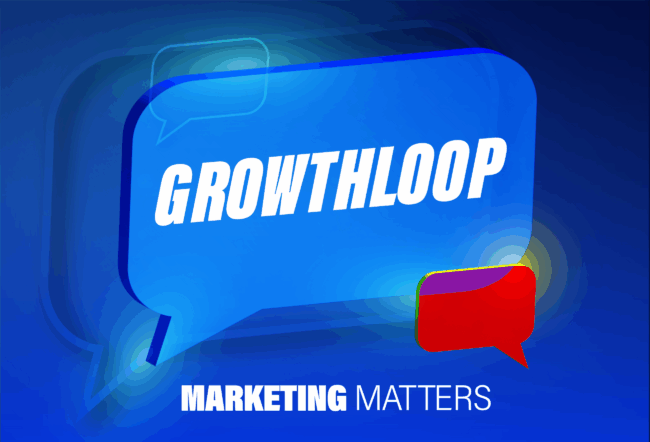The following article was written by Dr. Cornelia C. Walther, a visiting scholar at Wharton and director of global alliance POZE. A humanitarian practitioner who spent over 20 years at the United Nations, Walther’s current research focuses on leveraging AI for social good.
The rapid advancement of artificial intelligence has brought immense potential to revolutionize our lives, from automating mundane tasks to offering unprecedented insights and predictions. However, as we increasingly integrate AI into our daily routines and decision-making processes, there is a growing risk of delegating too much of our cognitive autonomy. This shift can lead to overreliance on AI, diminishing our ability to think critically, make independent judgments, and maintain a sense of personal agency. Stanford studies have shown that when individuals rely excessively on AI, they tend to experience a reduction in cognitive engagement and decision-making capabilities.
AI’s allure lies in processing vast amounts of data and performing complex calculations far beyond human capabilities. Initially, this technology serves as a valuable tool, enhancing our productivity and aiding in various domains. As utilization turns into reliance, we may begin to trust AI systems more than our own judgment, leading to a passive acceptance of AI-driven outcomes. This transition can eventually evolve into dependency, where AI’s influence over our decisions becomes so pervasive that we lose the ability to operate independently.
A study published by the MIT Sloan School of Management highlights the dangers of this dependency. Overreliance on AI in decision-making processes can lead to a decrease in critical thinking and problem-solving skills among professionals. Vigilance toward our own mind matters even more now. In addition to the well-known caveats of human thought like bias and prejudice, we are now at risk to slip from AI delegation to AI dependency.
The biggest challenge of the 21st century will be our ability to maintain and enhance our agency amid the growing presence of AI. We can address this challenge by adopting four assets: Attitude, Approach, Ability, and Aspiration.
1. Attitude: Cultivating Awareness, Appreciation, Acceptance, and Accountability
To counteract the risks associated with AI dependency, we can start by adopting a specific attitude. This involves cultivating awareness of the capabilities and limitations of both AI and humans, appreciating their respective potential, accepting the responsibility to use AI ethically, and holding ourselves accountable for the decisions made with AI assistance. A word on each:
Awareness: Understanding the scope and constraints of our own minds — and of AI — helps us set realistic expectations and avoid blind trust in its outputs. Awareness involves mindfulness, staying informed about AI developments, and being critical of the data and algorithms that drive these systems.
Appreciation: Recognizing what makes us unique as human beings and how AI might serve us in complementarity makes it possible to harness technological benefits while retaining our critical faculties. Appreciation involves acknowledging AI’s contributions to efficiency and innovation, but not at the expense of our judgment and free will.
Acceptance: Embracing the ethical implications of AI usage means accepting our role in ensuring these technologies are used responsibly. This includes being vigilant about the biases of humans and algorithms, and the ethical concerns in AI applications that reflect those.
Accountability: Holding ourselves accountable for AI-driven decisions ensures that we remain active participants in the decision-making process. Accountability involves regularly evaluating AI’s impact on our choices and adjusting as necessary. Ultimately, we are responsible for the outcomes that derive from the technology in our lives.
(All of these come together in the “A-Frame,” a concept that is explored further in this forthcoming book.)
2. Approach: Aligning Aspirations to Values and Actions
The second asset involves adopting an approach whereby we align our aspirations with our values and actions. This means ensuring that our use of AI reflects our personal and societal values and that our actions are consistent with these principles.
Aligning Aspirations to Values: Our goals in using AI should align with our core values, such as fairness, transparency, and inclusivity. This alignment helps prevent the misuse of AI and ensures that its deployment serves the greater good.
Aligning Values to Actions: Translating our values into concrete actions is crucial for maintaining agency. This involves implementing ethical guidelines and practices in AI usage, advocating for responsible AI policies, and participating in discussions about AI’s societal impact.
3. Ability: Developing “Double Literacy,” or Brain Literacy and Algorithmic Literacy
To preserve our agency amid AI, we must develop “double literacy”: a 360-degree understanding of both our own cognitive processes (brain literacy) and the mechanisms behind AI systems (algorithmic literacy) and how they interplay.
Brain Literacy: By understanding how our brains work, we can better recognize when AI might be influencing our decisions and take steps to mitigate this influence. Brain literacy involves being aware of cognitive biases and the ways in which AI can exploit these biases.
Algorithmic Literacy: Knowing how AI algorithms function allows us to critically assess their outputs and identify potential flaws or biases. Algorithmic literacy involves learning about the data, models, and assumptions that underpin AI systems and using this knowledge to make informed decisions.
Both types of literacy must be embedded in a holistic understanding of people and planet, and the kaleidoscope of constant change in which technology is increasingly omnipresent. AI holds the promise to enhance our lives, at work and at home. Whether it fulfills that promise depends on our ability to understand what it is (not) and who we are (not).
4. Aspiration: Embracing the Vision of a Society where Everyone Gets a Chance to Fulfill Their Potential
We have grown used to a world where only the strongest survive and resources are limited. What if we shifted our focus from scarcity to abundance, and from judgment to curiosity?
AI might serve as an ally in exploring unknown parts of our own frame of mind and expanding existing resources, whether it is knowledge or material assets to make all ends meet. Whether we are moving toward an age of abundance or perpetrating the status quo of scarcity depends on our Attitude, Approach, and the Action that we take — but most importantly, it depends on the Aspiration that underpins them, online and offline.
It is a slippery slope from experimentation with AI, to regular use of AI, to reliance and full-blown AI addiction. Hence our biggest challenge today is to consciously curate our cognitive autonomy and the power of personal agency that depends on it. By investing in cognitive autonomy, we are positioning ourselves for a journey where we remain the masters of our own decisions.
Read more of Walther’s thought leadership about agency amid AI on Forbes and check out her books here.



